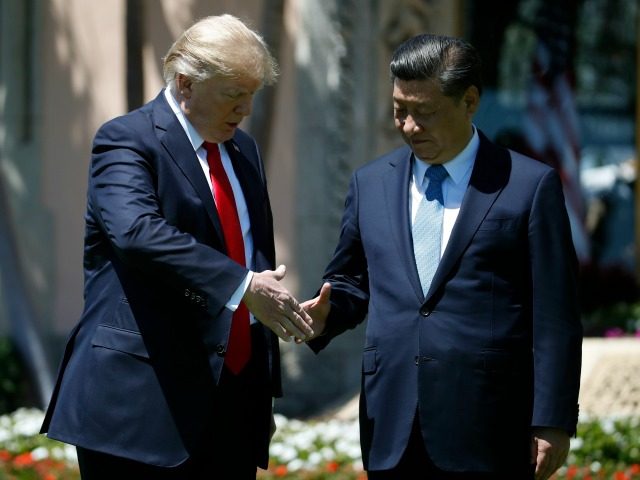President Donald Trump discussed several issues with Chinese President Xi Jinping during their high-profile meetings at Mar-a-lago this week.
Secretary of State Rex Tillerson told reporters that Trump was able to build on his important relationship with the president of China but was “frank” and “candid” about their differences.
“I think all of us are feeling very good about the results of this summit in terms of what it did for setting a very constructive tone going forward,” he said.
Chinese State media noted that “Xi’s two-day trip at Mar-a-Lago was marked by cordiality, with both presidents seen smile [sic] to each other.”
Some issues discussed during the visit are important to the United States:
Trade and Currency
Trump told the Chinese that they needed to “level the playing field for American workers,” according to a statement from the White House. He expressed concerns about the Chinese government’s intervention in U.S. economy was hurting jobs for the American worker.
Both Treasury Secretary Steven Mnuchin and Commerce Secretary Wilbur Ross spoke positively of a “100-day plan” that they discussed with their Chinese counterparts to make important changes immediately.
“The most interesting thing to me was they expressed an interest in reducing their net trade balance because of the impact it’s having on money supply and inflation,” Ross said about the Chinese. “That’s the first time I’ve heard them say that in a bilateral context.”
According to Xinhua, the Chinese state media, President Xi urged both countries to “grasp the opportunity” of economic development between the two countries and signaled interest in future investments.
“China welcomes the U.S. side to participate in cooperation within the framework of the Belt and Road Initiative,” said Xi.
North Korea
Trump and the Chinese agreed that North Korea’s nuclear weapons program presented a challenge to the region and said that they would take steps to pressure the rogue state with the “international community.”
No agreement was reached, but the United States reasserted that it is willing to act alone.
“[W]e understand it creates unique problems for them and challenges and that we would, and are, prepared to chart our own course if this is something China is just unable to coordinate with us,” Tillerson said.
South China Sea
Officials from the United States discussed the ongoing military buildup in the East and South China Seas, but the result was merely a “candid” conversation.
“President Trump noted the importance of adhering to international rules and norms in the East and South China Seas and to previous statements on non-militarization,” White House press secretary Sean Spicer said in a statement.
Human Rights
Tillerson remarked that America’s commitment to human rights was “quite clear” throughout all their discussions, but it appears that specific offenses were not discussed.
“I don’t think you have to have a separate conversation, somehow separate our core values around human rights from our economic discussions, our military-to-military discussions, or our foreign policy discussions,” he said. “They’re really embedded in every discussion, that that is really what guides much of our view around how we’re going to work together.”
Spicer said in a statement that Trump “noted the importance of protecting human rights and other values deeply held by Americans” during the visit.
The Chinese state media reported that Xi called on both sides to cooperate on issues such as “drug trafficking, child trafficking, money laundering, cyber crime and organized crime.”
Trump to Visit China
Trump accepted an invitation from President Xi to visit China for a state visit at some point.

COMMENTS
Please let us know if you're having issues with commenting.